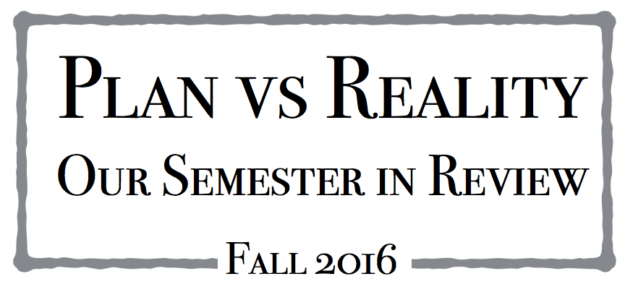
It’s that time again. Every semester or two I take a look back at how our plans panned out and share what really happened because… although I try to piece together an ideal plan, I’ve also been homeschooling long enough to accept that
Many are the plans in a person’s heart, but it is the LORD’s purpose that prevails. Proverbs 19:21, NIV
Nevertheless, planning is important. Without a plan, we don’t have vision or direction or goals. So… I plan and then pray that God will
Teach us to number our days, that we may gain a heart of wisdom. Psalm 90:12, NIV
Part of numbering our days aright is planning well. Part of numbering our days aright is letting go of the plans when God has something else in store for our family. So… I’ve learned to not just plan but to hold those plans loosely.
What was the plan for this semester?
Our core plan (for the 8-year-old and 10-year-old) included math, reading, writing (including a spelling & cursive program), and memory work (which includes daily map-drawing practice). The core plan for our 13-year-old has been Classical Conversations Challenge B.
We posted our reading plans before the semester started. Although I’ll highlight a few things below, our reading plans and loop schedules are the framework for our entire year.
Our read aloud selections for this semester included The Magic Runes: A Tale of the Times of Charlemagne, The Tales of Robin Hood, The Door in the Wall, Crispin: The Cross of Lead, Treasure Island, and The Struggle for Sea Power. Our picture books are listed here.
This is really important to note. We don’t follow our reading plan that’s set up in a week-by-week format. All of the extras such as poetry, Shakespeare, nature study, art projects, and history study were in a loop schedule: Beauty-Wonder Loop, Storytime Loop, and History Study Loop. To read about a loop schedule, visit our Reading Plans & Loop Schedules post. Without a loop, many of these things would have never happened at all.
What was reality?
The reality is that I’ve been in the midst of a part-time job that has consumed much of my thought processes for the past year. Through this, I’ve come to realize that I have to step back once again from career pursuits to do what’s best for my family. I have a lifetime to pursue job opportunities, but I only have this short season of my life to spend with my children. And serving others at the expense of my family is not what I should be doing.
As far as the core plan is concerned, one of our children isn’t quite where I hoped he would be in his math program, but he’s consistent with his lessons and solid with his math facts. One of the many advantages to homeschooling is that we can adjust pacing and meet our children where they are instead of just finishing the book. Aside from that, the core plan is pretty much on target, surprisingly enough.
The history study (Western Civilization) loop
Let me start with something that didn’t go according to plan. We only made it through the first three lessons of the Western Civilization Study.
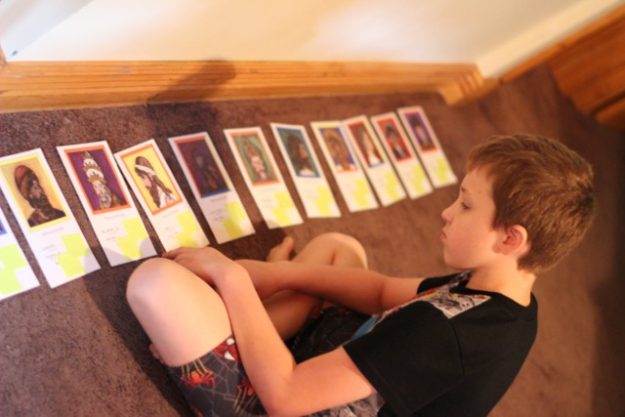
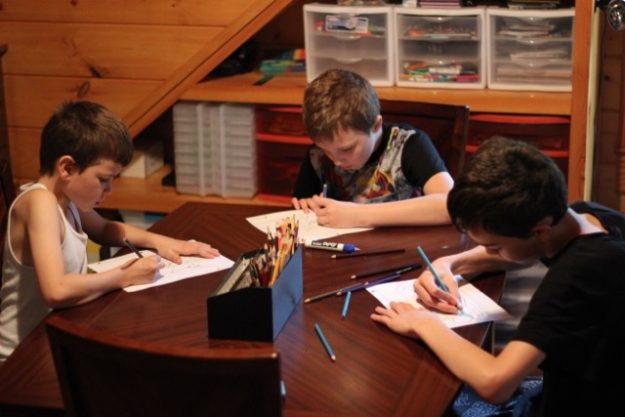
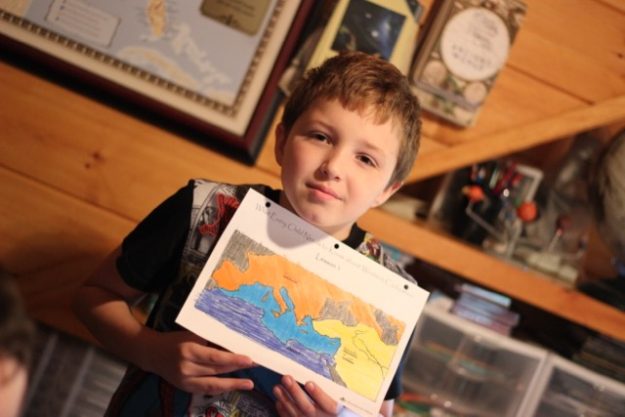
Because it’s only 16 total lessons, I’m hoping to focus on this one in January and February. Our children love this study, and it will be a nice way to avoid the winter doldrums that hit our home about that time. Plus, David is planning to use this study in his “Faces of History” research & presentation this year. If you’re using the Western Civilization Study, I’m hoping to put together some timeline images to include in our timeline notebook, so stay tuned!
The read alouds & storytime/beauty loops
This is my favorite part of our school days. I love sharing good stories with my children. We ended up dropping The Struggle for Sea Power from our reading because our children just weren’t engaged with this book. (In hindsight, I think The Struggle for Sea Power would work better as a read-a-chapter-a-week book.) Nevertheless, our read alouds included all of the others on our reading plan plus some more.
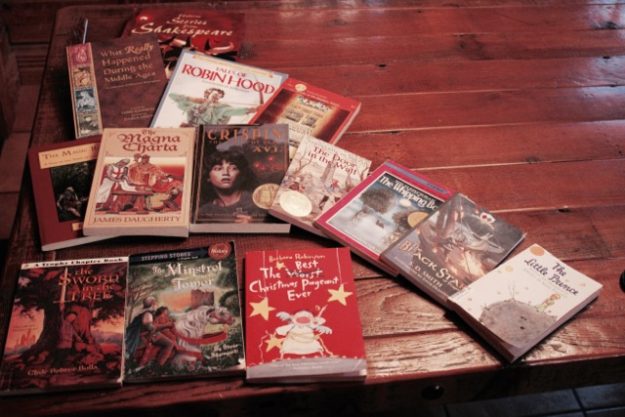
We added The Whipping Boy, The Black Star of Kingston, The Little Prince, The Magna Charta, The Best Christmas Pageant Ever, and The Twenty One Balloons. Every single one of these books became a favorite of our boys except The Magna Charta. (The Magna Charta was a good book, just not a favorite. It ties the story of the Magna Carta into the various documents that formed our nation, so it’s a great selection for Middle Ages (Cycle 2) or American history (Cycle 3).) Our 8-year-old also read aloud The Sword in the Tree and The Minstrel in the Tower, and we listened to some great free audiobooks such as A Christmas Carol, Gabriel and the Hour Book, and An Old Fashioned Thanksgiving. (We listen to audiobooks in the car during our out-of-state trips.)
Now… while we read many chapter books together, we didn’t dive much into our picture books. This is a first, friends. I’m not sure why we didn’t pursue many picture books this semester. Perhaps the boys are simply more interested now in the longer chapter books and read-alouds?
From our Storytime Loop, we finished What Really Happened During the Middle Ages, Stories from Shakespeare, and Medieval Tales that Kids Can Read & Tell. We’re still following the loop schedule plan for second semester in reading selections from the Book of Virtues, Hero Tales, Then Sings My Soul, and A Child’s Introduction to the Orchestra : Listen While You Learn About the Instruments, the Music and the Composers Who Wrote the Music!.
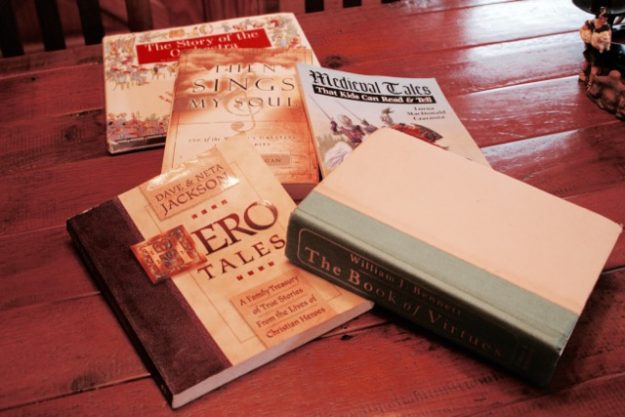
We only made it through the first 5 or so lessons of Science in the Ancient World. Because we were keeping up with Stephen’s scientists research, we decided to shelf this one (although he used it in much of his research). Instead of working through a textbook this semester for science, I sent the three oldest boys outside on nature studies with a highly-recommended favorite, The Nature Connection: An Outdoor Workbook. The book includes a bit of history behind each month, snippets of poetry, nature study prompts, explanations of science in nature (such as the water cycle, the moon phases, or why leaves change colors), and instructions to help draw landscapes, leaves, and other things they find in nature.
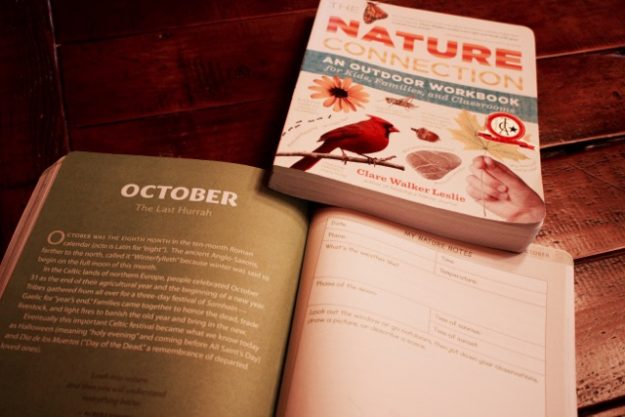
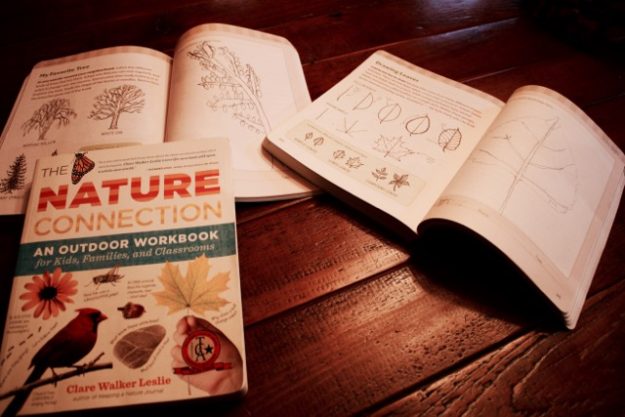
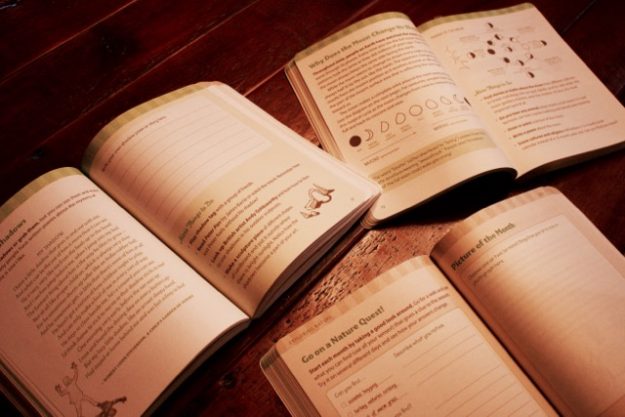
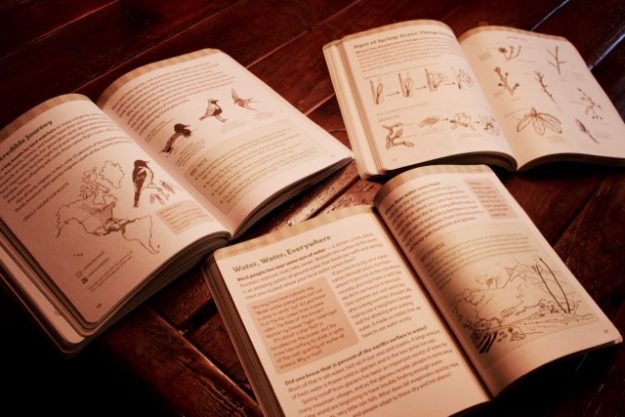
This gave them a bit more independence in their nature study, which I needed for this semester of work-life balance.
We also did not keep up with art study as I had hoped. We studied Van Gogh and Blake…
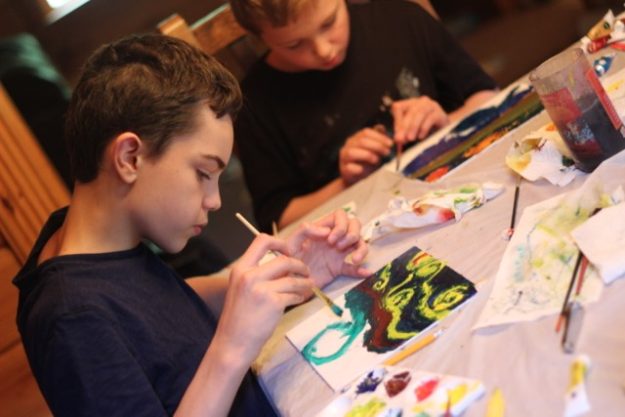
…and then art study fell off for a couple of months. During December, instead of studying those artists who were listed in our beauty-wonder loop, we completed art projects on Rembrandt, Linnaeus, Gainsborough, Monet, Degas, and Morisot. I’d like to go back and study the other artists if we get a chance later this year because they really are great artists, and it’s rewarding to study more than just what we focus on in our classical tutorial.
The Mom Reading Project
I was completely blown away by A Thomas Jefferson Education, and it gave me much to consider as a lifetime mentor of my children. I’m also working through three other books this year: The Best Yes, Simply Classical, and For the Children’s Sake (a fabulous book if you have littles!).
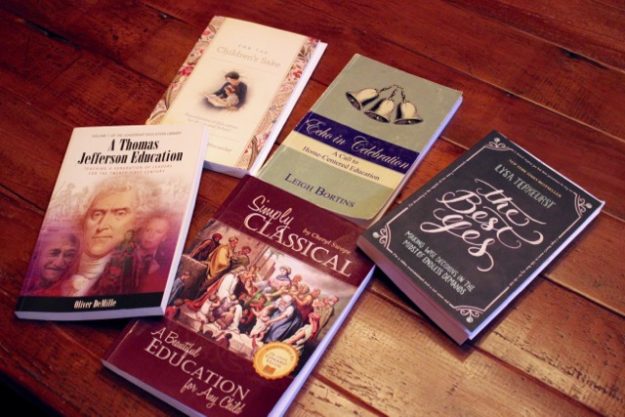
Perhaps by the end of this school year I will finish at least one of them? ha!
Without getting into our extracurricular activities (drama, puppet team, service projects, and trips to North Carolina and Oklahoma), this is, in a nutshell, how our semester turned out. We’re behind on our history study, we didn’t do 5 art studies & projects we had planned, and we didn’t work through the science book I had intended for us to work through. But as time goes on, I’m shocked at how much we read books together. All of the boys read their own book selections independently, and yet we still come together to read all of these books, too. Just a few years ago, we struggled to finish 7 books over the course of an entire year. The more we read, the easier it becomes. Sharing stories together has become a central part of our lives. We’re able to grow from tales and experiences of others throughout history in all parts of the world. What’s more, Scriptural truths are revealed in every book we read. I cannot even explain how much I treasure the deep conversations we have as a result of reading together.
If you look back on your semester, and all you can see is what you didn’t do, grab a pencil and a sheet of paper and start listing everything you did do. You might even brainstorm as a family as you look back on your semester. It’s hard to see all you did with your children if you don’t ever write it down. And while we can always improve our endeavors (and our character), we can also rest in the fact that there’s always more to learn. We’ll never master everything because God is infinite, so learning about God and His creation is infinite. We have a lifetime to “search out a matter” (Proverbs 25:2), and I’m blessed to have the opportunity to discover more about Him with those I love most.
If you’d like to read more about how things don’t go as planned around here, check out our other Reality Checks here!
Affiliate links are used in this post. When you use these links to make purchases from Amazon, it helps to support the cost of this website. Read our full disclosure here.
